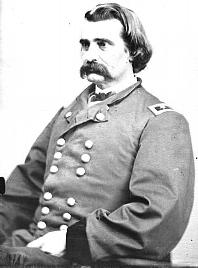I am always seeking out ways to maneuver my offspring into meaningful conversations.
I went into this parenting thing believing the lie that family dramas on TV sell (I’m looking at you Seventh Heaven) about deep conversations with your children happening once every 23 minutes only to discover that it’s really hard to find a time – and a place – to talk to your kids about the most important stuff in life.
For my oldest and me, the red Old Town canoe I bought off my former boss Ben McDade has turned out to be that place for us. We had the canoe out again on Memorial Day this week, and the time together did not disappoint.
The red canoe didn’t start out as such a great facilitator of dialogue. Back when Barron was a pre-teen, we took the canoe to the beach with us for our family vacation. We had just procured it, and I was eager to take it out on Choctawhatchee Bay, which we did several times during that week.
Those first excursions produced amazing moments like having dolphins swim right up next to us. That’s when, in a panic, I realized how big they are and how easily they could have sent us swimming.
That day on the bay also taught me that canoe conversations cannot be forced. Carla had been after me for months to have “THE TALK” with Barron about the birds and the bees. I decided he would be a captive audience in the canoe, but when I got around to broaching the subject, about an hour into our paddling, Barron said emphatically, “If we’re going to talk about sex, I’m jumping out.”
Over the years we have found safer discussion topics that I have enjoyed thoroughly. My laughter is probably still echoing off Stone Mountain from the time Barron regaled with me all of his misadventures at Boy Scout camp, many of which I had never heard. Those were foundational experiences for him and taught him to be resourceful and self-reliant, traits he continues to exhibit into adulthood.
In the three or so hours it takes us to paddle around the entire circumference of Stone Mountain Lake, we can cover a broad range of topics. We usually spend some time talking about our location: What Barron would do if he owned Stone Mountain Park, speculation about what movie or TV show is filming there on location, why a chipmunk would be swimming in the middle of the lake, our favorite part of the lake (Barron’s is the covered bridge, which he recently learned was transplanted from Athens), how do golfers play through or around so many Canada geese and the phenomenon of stand up paddle boarding.

Then there’s the rankings: all time best songs, TV shows, movies, vacations, college football games, etc.
And, the reason I get out of bed early on a holiday and go to the trouble of strapping the canoe to the top of the minivan – we also talk about deep subjects such as faith, church, career choices, relationships, the future, parenting and what we’re looking forward to.
There are lots of ways you can connect with the important people of your life. Barron and I have found the canoe really helps.
I don’t know the next time we’ll have the Old Town back on the water, but I look forward to the conversation.
Where do you find that you have meaningful conversations? Share the places and settings where you find that you have the best talks with friends or family members by leaving a comment below.


